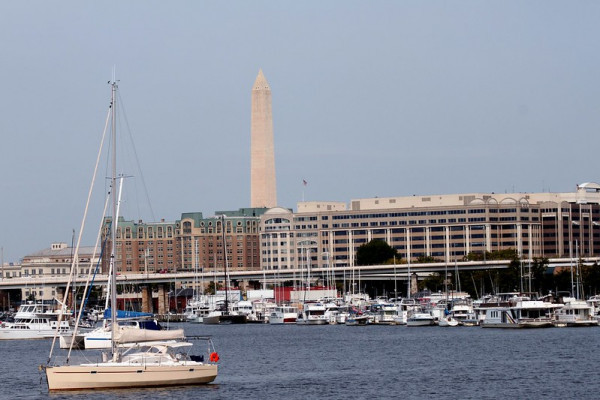 Aerial view of Boston neighborhoods
Aerial view of Boston neighborhoods
Boston, often hailed as the ‘Athens of America’, is a city steeped in history, culture, and vibrant modern life. While its nickname highlights its rich artistic and intellectual heritage – think world-class museums, stunning architecture, and a thriving theatre scene – Boston offers so much more. As one of the oldest cities in the United States, it’s a treasure trove of historical landmarks. Beyond the history, Boston boasts a phenomenal culinary scene, particularly renowned for its fresh seafood, and a passionate sporting culture, home to legendary teams like the Red Sox, Patriots, and Celtics. Deciding Where To Stay In Boston is key to unlocking the perfect experience, whether you’re drawn by historical exploration, cultural immersion, gourmet dining, or the electric atmosphere of a sports game.
Boston’s appeal lies in its diverse attractions, from the Museum of Fine Arts, with its impressive collections spanning Monets to Japanese art and ancient civilizations, to the Harvard Museum of Natural History. The Institute of Contemporary Arts and the Museum of Science offer more modern perspectives, while historical landmarks like the Bunker Hill Monument and Paul Revere’s House bring the past to life. For outdoor enthusiasts, the Boston Common and Public Garden provide green oases, complete with iconic swan boats. The New England Aquarium showcases marine wonders, and the Freedom Trail, a 2.5-mile walking path, connects 16 significant historical sites, offering an immersive journey through the city’s past.
Navigating Boston is a pleasure, especially on foot. The city’s layout encourages exploration, revealing historic buildings and charming green spaces at every turn. Many tourist hotspots are easily walkable, and for longer distances, Boston’s comprehensive public transport system, managed by a single agency, includes subways, trolley buses, and buses. Water shuttles and a commuter rail network are also available for exploring further afield. To help you pinpoint the ideal location for your visit, this guide explores the distinct character of Boston’s key neighborhoods, ensuring you find the perfect base for your Boston adventure and decide where to stay in Boston.
Downtown Boston: Historic Heart and Modern Hub
 Downtown Boston cityscape with Faneuil Hall Marketplace
Downtown Boston cityscape with Faneuil Hall Marketplace
Downtown Boston is the bustling epicenter of the city, where historical significance meets modern commerce. Home to a wealth of cultural and historical treasures, alongside major corporate headquarters, this area is a magnet for visitors. While primarily a commercial hub, Downtown Boston retains a European charm, characterized by pedestrian-friendly zones and impressive architecture designed to inspire. Accommodations are plentiful, and excellent public transport links make it easily accessible for commuters and tourists alike. If you’re seeking proximity to major attractions, Downtown and its neighboring areas are unbeatable. The Massachusetts State House, Old State House, Boston Common, and Boston Public Gardens are all within easy reach. The Freedom Trail, a must-do for history buffs, meanders through Downtown, connecting 16 pivotal sites. Don’t miss the vibrant outdoor markets like Haymarket, Boston’s oldest, and Quincy Market, a bustling marketplace offering diverse food and goods. Conveniently, Downtown Boston is just a 20-minute drive from the airport, making it an ideal place to stay in Boston for those prioritizing accessibility and sightseeing.
Downtown Boston: Pros and Cons
- Pros: Central location, major historical and cultural sights, stunning architecture, wide range of hotels, excellent restaurants and bars, superb public transport.
- Cons: Can be crowded with tourists.
- Ideal For: First-time visitors, history enthusiasts, families, sightseers, those who prefer to explore on foot.
Explore Hotels in Downtown Boston
Beacon Hill: Elegant Charm and Historic Grandeur
 Picturesque streets of Beacon Hill with Massachusetts State House
Picturesque streets of Beacon Hill with Massachusetts State House
Beacon Hill, while technically part of Downtown, possesses a distinct identity as one of Boston’s most quintessential neighborhoods. It embodies Bostonian elegance, from its upscale boutiques and residential streets to its verdant spaces like Boston Common and iconic landmarks such as the Massachusetts State House. Uniquely, Beacon Hill bucks the trend of Downtown Boston being primarily commercial; it’s a sought-after residential enclave, home to many of the city’s politicians and elite. Expect to see stately homes with breathtaking views overlooking the State House, the Boston Athenaeum, and charming squares. Choosing to stay in Beacon Hill offers an immersion into Boston’s refined side, with history and beauty at every corner.
Beacon Hill: Pros and Cons
- Pros: Central location, major sights, incredible architecture, rich history, luxurious atmosphere, excellent dining options.
- Cons: Can be expensive.
- Ideal For: Sightseers, romantic getaways, history aficionados, travelers seeking a luxurious experience.
Discover Hotels in Beacon Hill
West End and North End: Contrasting Neighbors with Unique Flavors
 Vibrant street scene in Boston's North End, Little Italy
Vibrant street scene in Boston's North End, Little Italy
Despite their names suggesting distance, Boston’s West End and North End are adjacent and offer contrasting yet complementary experiences. The West End is characterized by modern developments, including high-rise condos, numerous parks, the Museum of Science, and the New England Sports Museum. Its proximity to sports stadiums makes it ideal for fans. In contrast, the North End, also known as “Little Italy,” is a historic gem. Home to Paul Revere’s House, the Old North Church, Quincy Market, and Copp’s Hill Burying Ground, it exudes old-world charm. Hanover Street, the North End’s main thoroughfare, is lined with authentic Italian delis, bakeries, and restaurants, fostering a vibrant neighborhood atmosphere where locals shop daily for fresh ingredients. Selecting accommodation in the North End offers an immersive cultural experience, while the West End caters to those seeking modern amenities and entertainment.
West End and North End: Pros and Cons
- Pros: Central location, atmospheric neighborhoods, major historical sites, market shopping, proximity to sports venues, excellent bars and restaurants, strong neighborhood feel.
- Cons: Dining options are heavily Italian-influenced in the North End.
- Ideal For: History buffs, sightseers, food lovers, families, travelers seeking an authentic neighborhood experience.
Find Hotels in Boston’s North End or West End
South Boston and the Boston Harbor: Waterfront Views and Emerging Trends
 Scenic Boston Harbor waterfront with city skyline
Scenic Boston Harbor waterfront with city skyline
South Boston, a large and diverse neighborhood, encompasses smaller districts like the rapidly evolving Boston Harbor waterfront. The Seaport District, centered around the Institute of Contemporary Art, is a hub of modern development, boasting trendy restaurants, bars, and entertainment venues. Historically significant attractions in this area include the Boston Tea Party Ships & Museum, the Children’s Museum, Castle Island, Fort Independence, and the Boston Harbor Islands National Park. South Boston proper, or “Southie,” located inland from the waterfront, is undergoing gentrification, particularly around landmarks like the John F. Kennedy Presidential Museum and Library and the Commonwealth Museum. Choosing to stay in South Boston provides access to waterfront excitement and emerging cultural hotspots, with varied neighborhoods to explore.
South Boston and Boston Harbor: Pros and Cons
- Pros: Trendy and developing, waterfront access, major sights, art galleries, vibrant nightlife.
- Cons: Neighborhood character can vary significantly within South Boston.
- Ideal For: Trendsetters, nightlife enthusiasts, art lovers, sightseers, couples, travelers seeking value and waterfront experiences.
Explore Hotels in South Boston
Back Bay: Elegant Streets and Victorian Charm
 Picturesque Back Bay with Charles River and sailboats
Picturesque Back Bay with Charles River and sailboats
Back Bay stands out as one of Boston’s most sophisticated neighborhoods, renowned for its fashionable boutiques, stunning Victorian brownstones, and chic cafes. Newbury Street is a shopper’s paradise, offering everything from high-end designer stores to popular high-street brands. Back Bay’s dining scene is equally impressive, with a diverse array of restaurants. Centrally located, Back Bay boasts landmarks such as the Boston Public Library, Trinity Church, and the Prudential Center Observatory, offering panoramic city views. Its proximity to the Public Gardens, Boston Common, and the Charles River enhances its appeal. Selecting Back Bay for your Boston stay means immersing yourself in elegance, upscale shopping, and architectural beauty.
Back Bay: Pros and Cons
- Pros: Central location, elegant Victorian architecture, luxury shopping, excellent cafes and restaurants.
- Cons: Can be expensive.
- Ideal For: Luxury lovers, sightseers, families, shoppers, romantic getaways, travelers seeking a refined experience.
Find Hotels in Back Bay
South End: Hip Vibe and Artistic Flair
 Charming brownstone houses in Boston's South End neighborhood
Charming brownstone houses in Boston's South End neighborhood
Slightly outside the immediate city center, the South End is a trendy neighborhood rapidly becoming one of Boston’s most desirable residential areas. Charming rows of Victorian brownstones line leafy streets, interspersed with small parks and local hubs of cafes and delis. The South End is known for its innovative dining scene, trendy bars, and independent boutiques. SoWa, the South End’s artsy district, is home to art galleries, studios, and the largest open market in Boston. Harriet Tubman’s House adds a layer of historical significance to the neighborhood. Choosing to stay in the South End offers a blend of residential charm, artistic energy, and a thriving culinary scene, slightly removed from the main tourist crowds.
South End: Pros and Cons
- Pros: Central location, hip and trendy atmosphere, great theatre and nightlife, excellent cafes and restaurants, arts district, leafy parks.
- Cons: Slightly further from the main tourist center compared to Downtown or Back Bay.
- Ideal For: Trendsetters, art lovers, theatre enthusiasts, couples, families, travelers seeking a hip and local vibe.
Discover Hotels in South End
Fenway-Kenmore: Sports, Culture, and Lively Nights
 Fenway Park, home of the Boston Red Sox
Fenway Park, home of the Boston Red Sox
For sports enthusiasts, Fenway-Kenmore is synonymous with Fenway Park, home of the Boston Red Sox. Kenmore Square, the area’s namesake, is more of a cultural hub, housing the Boston Symphony Orchestra, the Museum of Fine Arts, and the Isabella Stewart Gardner Museum. Fenway-Kenmore is also a vibrant shopping destination and, with several universities nearby, boasts a lively nightlife scene. The area offers a diverse range of restaurants and bars catering to a student and tourist crowd. Selecting Fenway-Kenmore as your base in Boston puts you at the heart of sports action, cultural attractions, and energetic nightlife.
Fenway-Kenmore: Pros and Cons
- Pros: Central location, home to sports grounds, cultural sights, great nightlife.
- Cons: Can be very busy and crowded on game days.
- Ideal For: Sports fans, music lovers, art lovers, families, travelers seeking an energetic and culturally rich experience.
Explore Hotels in Fenway-Kenmore
Choosing where to stay in Boston depends on your priorities and travel style. From the historic heart of Downtown to the elegant streets of Back Bay, the vibrant North End, or the trendy South End, Boston offers a neighborhood to suit every traveler. Consider what you want to experience most – history, culture, dining, nightlife, or sports – and let this guide lead you to the perfect Boston neighborhood for your unforgettable stay.


